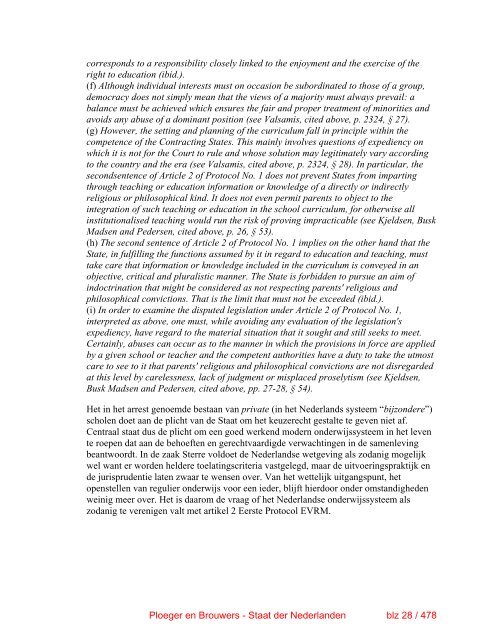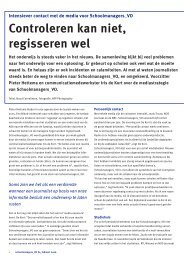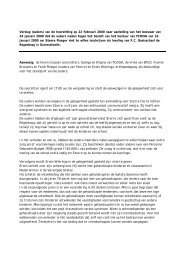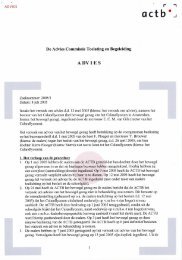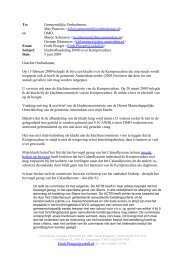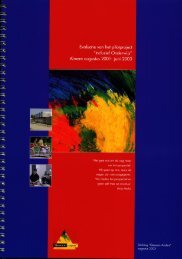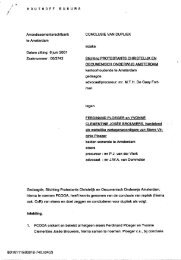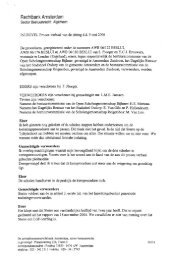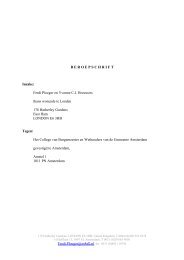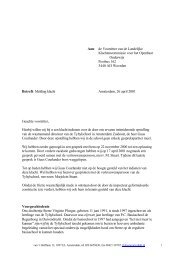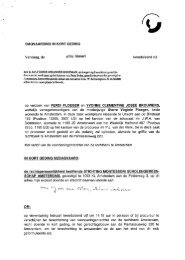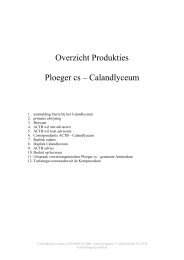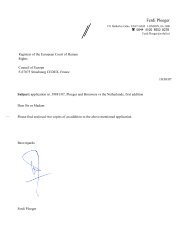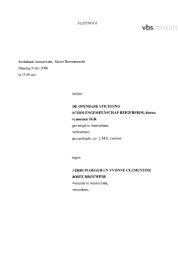2007-09-10, verzoekschrift
2007-09-10, verzoekschrift
2007-09-10, verzoekschrift
You also want an ePaper? Increase the reach of your titles
YUMPU automatically turns print PDFs into web optimized ePapers that Google loves.
corresponds to a responsibility closely linked to the enjoyment and the exercise of the<br />
right to education (ibid.).<br />
(f) Although individual interests must on occasion be subordinated to those of a group,<br />
democracy does not simply mean that the views of a majority must always prevail: a<br />
balance must be achieved which ensures the fair and proper treatment of minorities and<br />
avoids any abuse of a dominant position (see Valsamis, cited above, p. 2324, § 27).<br />
(g) However, the setting and planning of the curriculum fall in principle within the<br />
competence of the Contracting States. This mainly involves questions of expediency on<br />
which it is not for the Court to rule and whose solution may legitimately vary according<br />
to the country and the era (see Valsamis, cited above, p. 2324, § 28). In particular, the<br />
secondsentence of Article 2 of Protocol No. 1 does not prevent States from imparting<br />
through teaching or education information or knowledge of a directly or indirectly<br />
religious or philosophical kind. It does not even permit parents to object to the<br />
integration of such teaching or education in the school curriculum, for otherwise all<br />
institutionalised teaching would run the risk of proving impracticable (see Kjeldsen, Busk<br />
Madsen and Pedersen, cited above, p. 26, § 53).<br />
(h) The second sentence of Article 2 of Protocol No. 1 implies on the other hand that the<br />
State, in fulfilling the functions assumed by it in regard to education and teaching, must<br />
take care that information or knowledge included in the curriculum is conveyed in an<br />
objective, critical and pluralistic manner. The State is forbidden to pursue an aim of<br />
indoctrination that might be considered as not respecting parents' religious and<br />
philosophical convictions. That is the limit that must not be exceeded (ibid.).<br />
(i) In order to examine the disputed legislation under Article 2 of Protocol No. 1,<br />
interpreted as above, one must, while avoiding any evaluation of the legislation's<br />
expediency, have regard to the material situation that it sought and still seeks to meet.<br />
Certainly, abuses can occur as to the manner in which the provisions in force are applied<br />
by a given school or teacher and the competent authorities have a duty to take the utmost<br />
care to see to it that parents' religious and philosophical convictions are not disregarded<br />
at this level by carelessness, lack of judgment or misplaced proselytism (see Kjeldsen,<br />
Busk Madsen and Pedersen, cited above, pp. 27-28, § 54).<br />
Het in het arrest genoemde bestaan van private (in het Nederlands systeem “bijzondere”)<br />
scholen doet aan de plicht van de Staat om het keuzerecht gestalte te geven niet af.<br />
Centraal staat dus de plicht om een goed werkend modern onderwijssysteem in het leven<br />
te roepen dat aan de behoeften en gerechtvaardigde verwachtingen in de samenleving<br />
beantwoordt. In de zaak Sterre voldoet de Nederlandse wetgeving als zodanig mogelijk<br />
wel want er worden heldere toelatingscriteria vastgelegd, maar de uitvoeringspraktijk en<br />
de jurisprudentie laten zwaar te wensen over. Van het wettelijk uitgangspunt, het<br />
openstellen van regulier onderwijs voor een ieder, blijft hierdoor onder omstandigheden<br />
weinig meer over. Het is daarom de vraag of het Nederlandse onderwijssysteem als<br />
zodanig te verenigen valt met artikel 2 Eerste Protocol EVRM.<br />
Ploeger en Brouwers - Staat der Nederlanden blz 28 / 478


